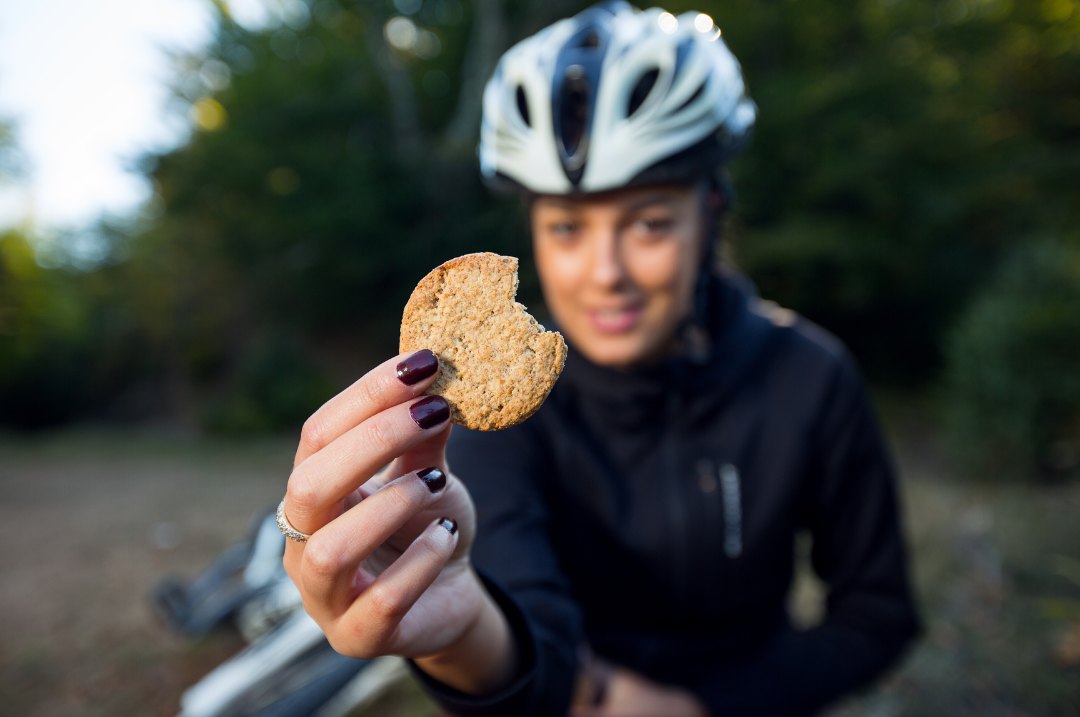Bike touring is a new way of travelling by bike that has been growing strongly in recent years in Italy, but also abroad. This type of physical activity, like most sports, requires excellent fitness and an adequate diet, which can only be achieved through a proper balance between diet and cycling.
The right nutrition can make the difference between a good performance and a mediocre one. Therefore, within this guide, we at Bikeit will explore the importance of nutrition for cycling and we’ll give you advice on planning the perfect diet, with a focus on the right breakfast, supplements, hydration and generally how to manage meals before, during and after cycling.
Why proper nutrition for cycling is important
Nutrition and cycling are definitely two things that must go hand in hand for cyclists who want to achieve their performance and overall health goals.
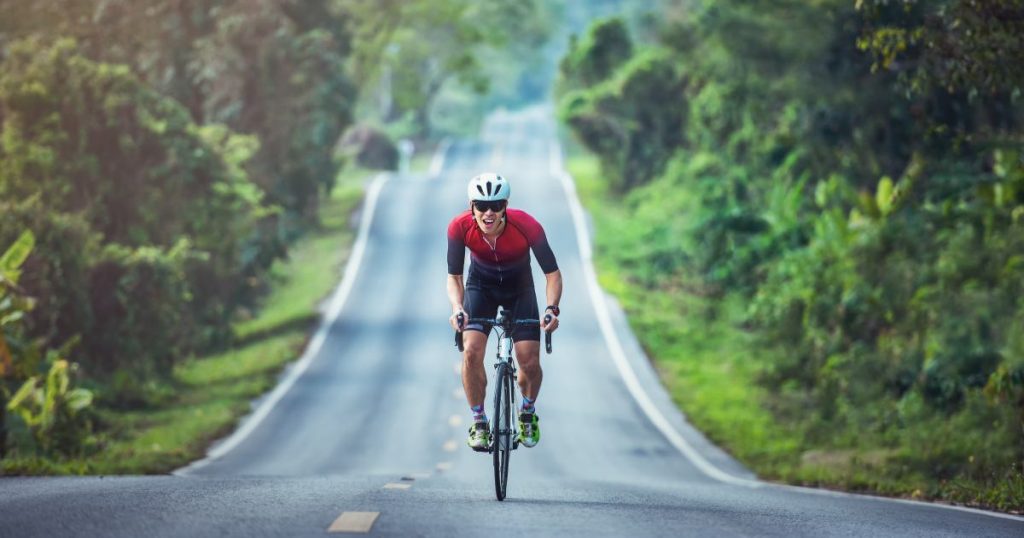
The reasons why nutrition for cycling is essential are numerous, but let’s look specifically at the five main reasons:
1. Provides energy
Cycling is an energy-intensive physical activity and the right diet can provide the amount of carbohydrates needed to sustain not only training, but also cycling holidays. Complex carbohydrates, such as those found in whole grains, provide long-term energy, while simple carbohydrates, such as those found in baked goods or sugary drinks, provide short-term energy and can be useful during intense physical activity of short duration.
2. Improves endurance
A balanced and nutritious diet can help improve a cyclist’s endurance, allowing him or her to cycle for longer periods of time without fatigue. In particular, a diet rich in complex carbohydrates can help maintain muscle glycogen levels, which is an important source of energy during physical activity.
3. Promotes muscle repair
During physical activity, muscles suffer micro-lesions that take time to repair. A diet rich in lean protein can help promote muscle repair and recovery after training. In particular, proteins are important for muscle protein synthesis, which is the process by which muscles repair and grow.
4. Optimises body composition
A balanced diet can help maintain an optimal body composition, with the right amount of muscle mass and body fat. In particular, a diet rich in lean protein can help promote muscle protein synthesis and body fat loss.
5. Supports the immune system
During biking, the cyclist’s immune system can be compromised, increasing the risk of illness and injury. A diet rich in key nutrients such as vitamins and minerals can help support the cyclist’s immune system, reducing the risk of illness and injury. In particular, vitamins A, C and E are important for the immune system and can be found in foods such as fruit, vegetables and nuts.
Essential nutrients for a cyclist
Foods suitable for a cyclist should be rich in complex carbohydrates, lean proteins, healthy fats and key nutrients such as vitamins and minerals. It is also important to maintain hydration by drinking plenty of water and supplementing sports drinks during intense physical activity to maintain electrolyte levels.
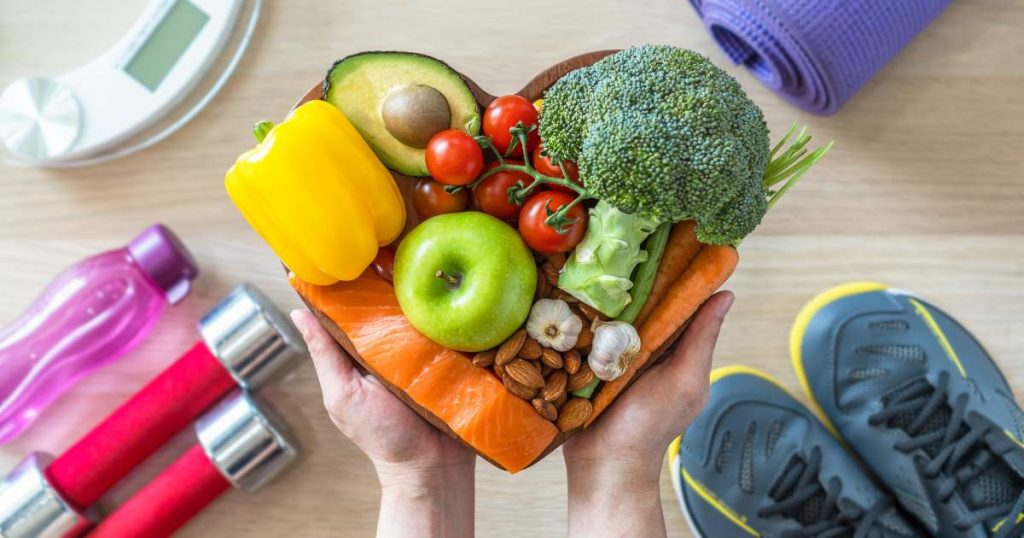
A well-balanced cycling diet tailored to a cyclist’s needs can help improve endurance, strength and muscle repair, contributing to better performance on the bike. But let us look more specifically at which foods are the most important and what benefits they have:
Cycling supplements
Cycling supplements have become increasingly popular among athletes seeking to improve their performance on the bike. Supplements can provide key nutrients quickly and effectively, helping to support endurance, strength and muscle repair.
However, it is important to note that supplements should not be used as a substitute for a balanced and nutritious diet, but considered as an addition to the diet, to fill any nutritional gaps and improve the effectiveness of training.
Before using any supplement, it is important to consult a doctor or nutritionist to determine whether it is suitable for your needs and health condition. In this way, athletes can maximise their benefits and achieve their optimal performance safely and effectively.
Among the main cycling supplements that we at Bikeit recommend are:
- Creatine: for muscle strength
- Coffee and green tea: for energy and concentration
- Omega-3: for cardiovascular health and inflammation
- Protein: for muscle building
- Electrolytes: for hydration and performance
Carbohydrates for cycling
Carbohydrates for cycling are a crucial source of energy. During exercise, our bodies use carbohydrates as the main source of fuel to nourish the moving muscles.
Carbohydrates are also important for recovery after training, as during exercise, muscles use carbohydrates stored in the body, known as glycogen, to produce energy. After exercise, these glycogen stores are depleted and need to be replenished, so carbohydrate intake after exercise helps to replenish muscle glycogen and restore energy for the next workout.
In addition, carbohydrates are important for maintaining a constant blood glucose level during exercise. A carbohydrate deficiency can in fact lead to reduced energy and stamina, causing fatigue and decreased performance.
Protein for cyclists
Proteins for cycling are essential nutrients, as they play several roles that are crucial for performance and health. More specifically:
- They are essential for muscle repair and reconstruction after training, as intense exercise can cause micro-lesions in muscle tissue. Protein synthesis helps repair these tissues and promote muscle growth, allowing cyclists to recover more quickly and perform better during their rides.
- They play a key role in hormone balance and regulation of the immune system, both of which are important for cyclists facing more stressful situations, such as long bike trips.
- Proteins are also important for maintaining lean muscle mass and controlling body weight, as it helps reduce appetite and maintain a feeling of satiety for longer.
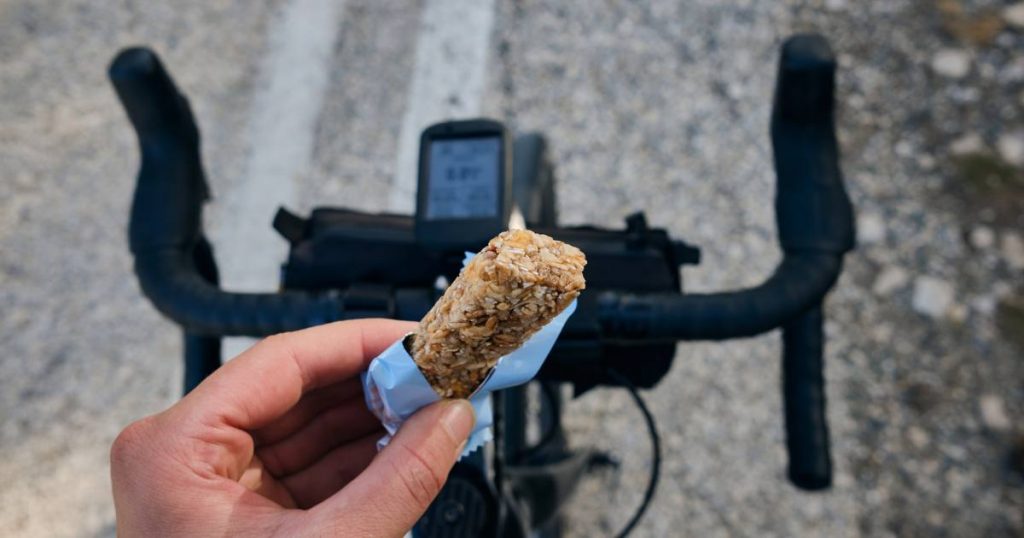
Good fats for cycling
Good fats, also known as unsaturated fatty acids, play a key role in the nutrition of cyclists, as they provide a long-lasting source of energy for the body. This type of fat is found in foods such as nuts, seeds, avocados, olive oil and fish, and it is important to include them in the daily diet to improve endurance and efficiency while cycling.
In particular, monounsaturated and polyunsaturated fats help reduce inflammation in the body, improving blood vessel health and blood circulation. In addition, omega-3 fats, mainly found in fatty fish such as salmon, have been shown to have positive effects on heart function and the immune system.
Cyclists who eat a diet rich in good fats can therefore benefit from an increase in endurance, muscle strength and recovery capacity after physical exertion. However, it is important not to overdo fat intake, as excessive consumption can increase the risk of body fat accumulation and health problems such as high cholesterol.
Vitamins and minerals for cyclists
Vitamins and minerals are essential for everyone’s health and well-being, but they are especially important for cyclists. These nutrients are involved in a wide range of body functions, including energy production, building muscle tissue, maintaining water balance and optimising immune function.
For cyclists, energy is a key resource, and B vitamins are essential for metabolising carbohydrates, proteins and fats, providing the body with the energy it needs to pedal for hours. Vitamin C is important for collagen synthesis, which helps maintain healthy joints and connective tissues, while vitamin E helps protect muscles from oxidation during strenuous exercise.
Furthermore, minerals such as calcium, magnesium and potassium are important for maintaining the body’s water balance and for the proper functioning of the muscles. Iron is another essential mineral for cyclists, as iron deficiency can cause reduced performance due to the reduced ability of the blood to transport oxygen to the muscles.
Sports drinks vs. water
Cycling is a sport that requires intense physical activity, which can cause a rapid loss of fluids and minerals through sweating. For this reason, hydration during cycling is important to maintain an adequate fluid intake during physical activity.
Water is essential to hydrate the body, and sports drinks are specially designed to provide the cyclist with an adequate supply of carbohydrates, electrolytes and other nutrients needed to maintain energy levels and hydration during prolonged physical activity.
Sports drinks can therefore help maintain the right blood sugar concentration, improve endurance and prevent muscle fatigue. They can also be tastier than water and can encourage the cyclist to drink more frequently during physical activity, thus keeping the body hydrated. However, it is important to choose a quality sports drink that contains the right ingredients and is not too sugary.
In general, water should still be the main drink during cycling, but sports drinks can be an important addition to maintain adequate nutrient intake and prevent dehydration.
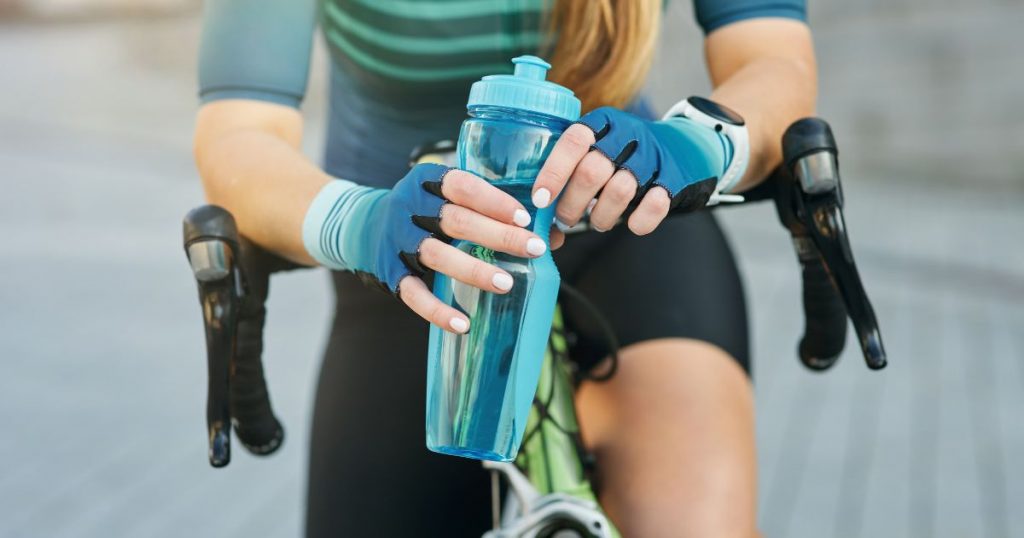
Pre-cycling nutrition
One of the most important aspects of nutrition for cyclists is the pre-workout, i.e. the meal that is consumed before cycling.
In particular, a proper pre-cycling nutrition can affect performance, energy and endurance during physical activity. That’s why we at Bikeit will give you some advice on what to eat before a training session.
Cyclist’s breakfast
The cyclist’s breakfast is an essential meal for cycling enthusiasts, as it provides the energy needed to cope with long and demanding training sessions.
An adequate breakfast should be rich in complex carbohydrates and proteins to ensure a constant and lasting source of energy during physical activity.
In addition, it is important to avoid fatty or too heavy foods, which could slow down digestion and hinder performance. A well-balanced and nutritious breakfast will ensure a perfect start to the day.
Examples of what to eat before biking
Eating the right food before cycling is essential to ensure good performance and prevent fatigue and exhaustion during physical activity.
For example, a good option could be a portion of Greek yoghurt with fresh fruit and granola, accompanied by a slice of wholemeal bread with a source of protein such as low-fat cheese or ham.
Alternatively, you could opt for a fruit and vegetable smoothie with a portion of protein powder, or a portion of wholemeal pasta with a light sauce and a source of protein such as chicken or salmon.
Nutrition during cycling
During cycling training, it is important to maintain an adequate intake of nutrients to ensure optimal performance and prevent muscle fatigue.
In general, it is advisable to consume foods rich in carbohydrates, protein and liquids, such as fresh fruit, whole-grain cereals, bread or energy bars.
It is advisable to avoid fatty or heavy foods that can slow down digestion and cause discomfort during training.
Post-cycling nutrition
After an intense cycling training session, it is important to provide your body with the right nourishment to restore depleted energy and promote muscle repair. A proper post-cycling nutrition can help reduce the risk of injury, improve performance and speed up recovery time. Here are some tips on nutrition after cycling:
Recovery in cycling: muscle regeneration
Muscle regeneration is a fundamental process for recovery in cycling. After an intense training session on the bike, the muscles can be damaged and fatigued, and their recovery depends to a large extent on the correct post-workout nutrition.
A good food choice is to consume a combination of carbohydrates and protein within 30 minutes after exercise. This can include a portion of fresh or dried fruit, together with a Greek yoghurt or a protein bar. Alternatively, a protein shake with fruit and milk or almond milk can be a tasty and nutritious choice. It is also important to drink plenty of water to hydrate and replace fluids lost during training.
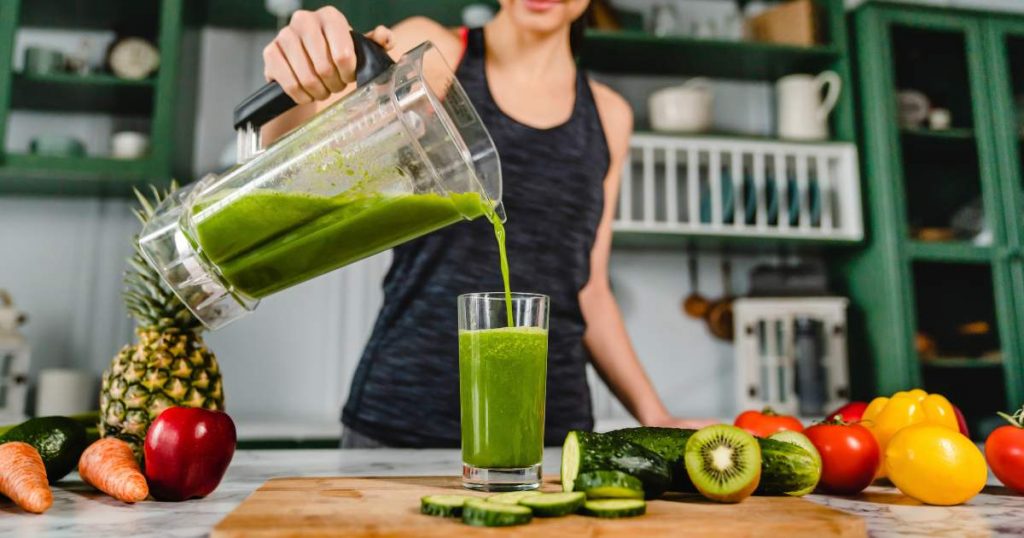
Book your cycling holidays with Bikeit
Once you have discovered the right way to combine nutrition and cycling, all you have to do is booking a great bike trip with Bikeit, in one of the many packages with hotels and luggage transport included, along the best bike routes in Italy and abroad.
Bikeit is the online booking platform that allows you to book your cycling holiday online quickly and easily. What are you waiting for?
